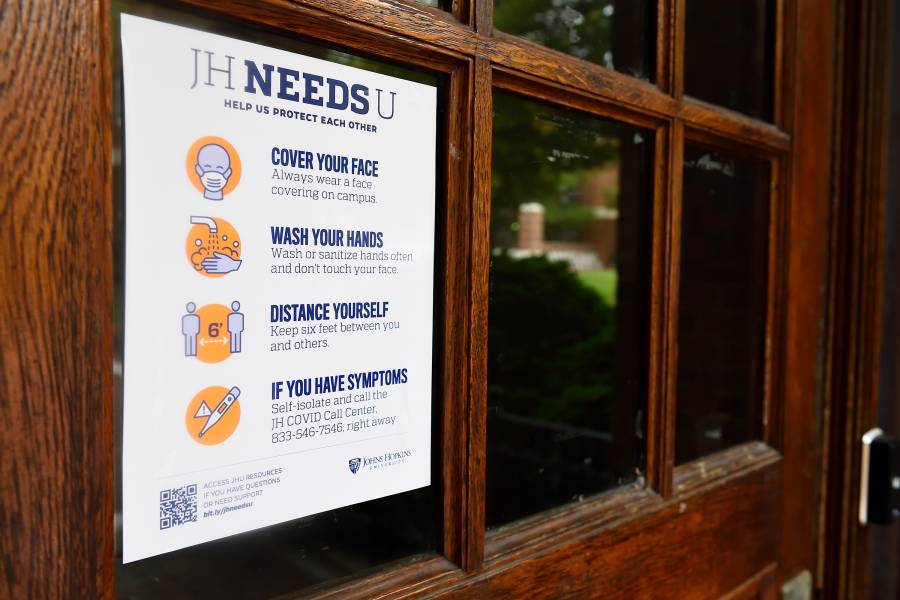Johns Hopkins University confirmed plans today to carefully expand in-person activities for the spring semester, paving the way for students to return to campus classrooms for the first time since the university transitioned to remote instruction in March 2020 amid the COVID-19 pandemic.
The return to campus, announced in an email to the university community today, will be optional for faculty and students, and courses will include in-person and remote/virtual formats. Move-in and orientation for undergraduates living in Homewood campus residence halls will begin on Jan. 16.
The spring semester will begin as scheduled on Jan. 25, but class sessions for Homewood undergraduates will remain online until Feb. 1 to ensure that students are able to meet the requirement of two negative tests, optimally spaced apart, before taking part in on-campus instruction or other activities.
"With our shared commitment and dedication to following best practices in containing the spread of the virus, as well as the added support of a broad-based COVID testing program, we believe we can prudently and safely move to a more extensive on-campus experience for the spring semester," Ronald J. Daniels, president of Johns Hopkins University; Sunil Kumar, university provost; and Mary Miller, senior vice president for finance and administration, wrote in today's message.
About a quarter of Homewood undergraduate students are expected to return and live on campus in residence halls, university leaders said. This number helps ensure that on-campus housing will only reach 50% capacity. Approximately 62% of undergraduates plan to live in the surrounding area, and 12% do not plan to come to Baltimore for in-person instruction.
All undergraduate students in Baltimore will be subject to mandatory COVID-19 testing at least twice weekly, and many other students, faculty, and staff will be subject to weekly tests. All activities will be conducted at a reduced density and in compliance with state and local requirements and public health guidelines. Those who return to campus will be required to use the Prodensity app to demonstrate testing compliance and to monitor symptoms, to wear face coverings at all times, and to avoid large gatherings.
On-campus instruction will be conducted in classrooms prepared for distancing, ensuring at least 6 feet among students and instructors. In addition to required COVID-19 testing, the university has launched extensive contact tracing operations to help identify and isolate those who contract the virus. The university will conduct genetic sequencing in samples from positive cases in order to help identify different strains of virus that may emerge.
Plans for on-campus activity including instruction at the Peabody Institute and the graduate divisions vary, but all will conform to the same health and safety standards. These divisions will provide information directly to their students about academic and research opportunities.
"As we have from the outset, we will always put public health first, and continue to consider the complex set of factors and data available to us in frequent consultation with our faculty, student and staff advisory committees and national and local public health experts," Daniels, Kumar, and Miller wrote.
They added: "We know there will be difficult days ahead as we continue to struggle to contain this pandemic. Thank you for all you are doing to care for yourselves and one another, and for all you serve."
Posted in University News, Student Life
Tagged coronavirus, covid-19








